Sustainable Waste Management at Kew Gardens: A Greener Future
Kew Gardens, a renowned botanical garden in Richmond, London, attracts 1.5 million visitors annually. Known for its plant collection and sustainability efforts, it focuses on reducing food waste as part of its environmental agenda.
The Importance of Sustainability at Kew Gardens
As part of its broader environmental strategy, Kew Gardens recognises the significant ecological impact of food waste. Food waste is a major contributor to landfill overflow, greenhouse gas emissions, and resource inefficiency. Given that the gardens have multiple cafes and restaurants that serve visitors, food waste management became a critical priority for Kew Gardens.
With this in mind, the garden’s team collaborated with Harp Renewables to install the Harp CX5, an innovative, on-site food waste processor that turns food scraps into valuable, nutrient-rich fertilizer. This initiative supports Kew Gardens’ sustainability goals by reducing carbon emissions, minimizing waste disposal costs, and contributing to their circular economy practices.
How the Harp CX5 Works
The Harp CX5 is an aerobic biodigester capable of processing up to 5000 litres of organic waste every week, turning it into high-value compost in just 24 hours. The machine operates through an aerobic digestion process, where oxygen-loving bacteria break down the organic waste into a nutrient-rich fertilizer. This system is fully automated, requiring minimal operator intervention, and is equipped with sensors to monitor the temperature, pH, and other critical parameters for optimal digestion.
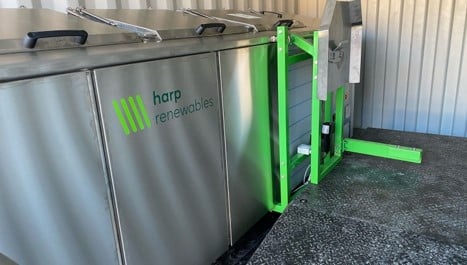
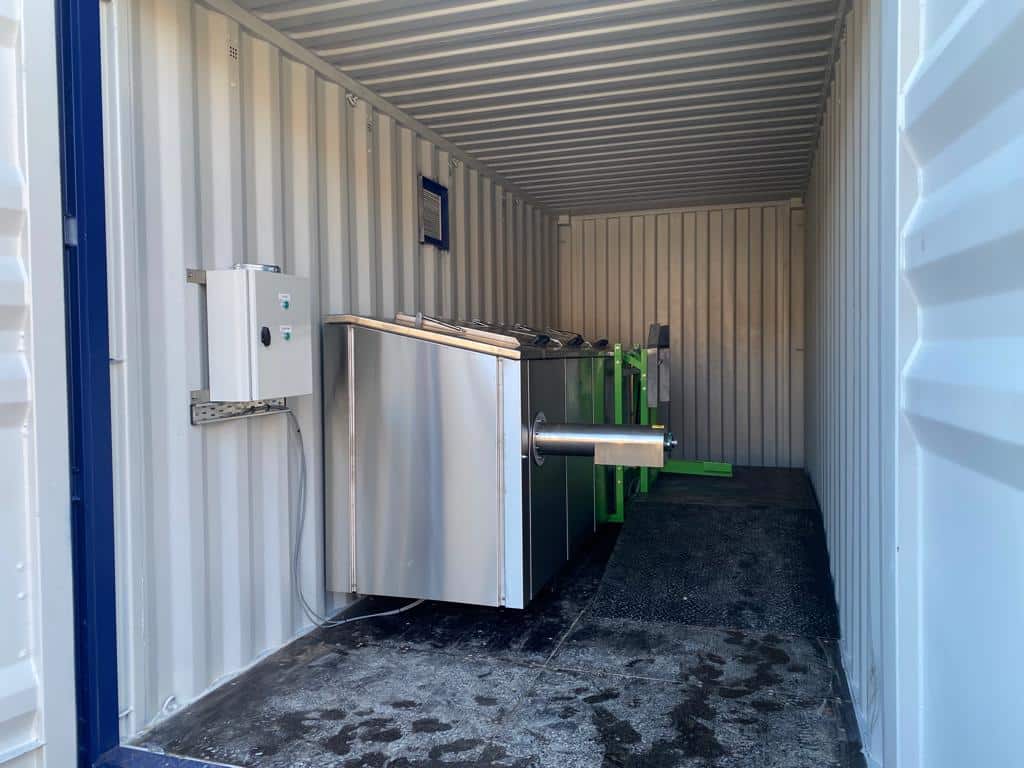
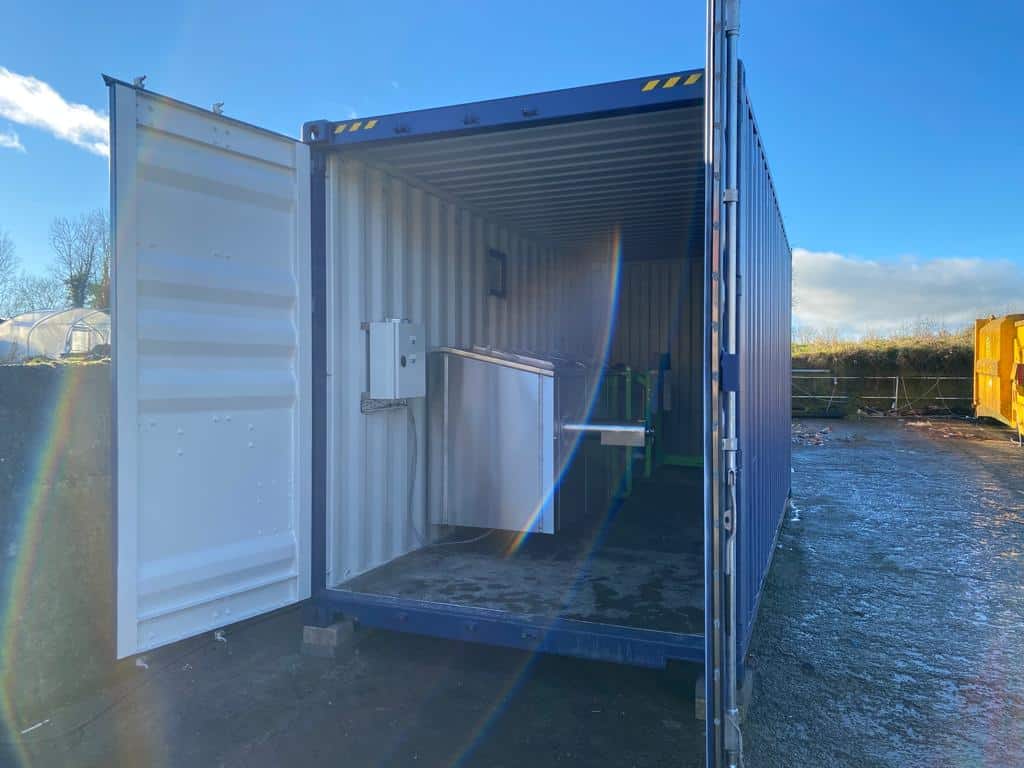
Specifications
- Equipment: Harp CX5 with a bin lifter located inside a 10ft container
- Waste Stream: On-site canteen waste.
- Capacity: 715 Litres/Day, 5000 Litres/Week, 260,000 Litres/Year
- Estimated CO2 Savings: -3227.4 KgCO2eq (- 3.2 Tonnes CO2eq)
.
Located in a 10ft container for easy storage and transportation, the Harp CX5 includes a bin lifter that helps efficiently move food waste from the premises’ cafes and restaurants into the system. This feature minimizes manual handling, further streamlining the waste management process.
Benefits for Kew Gardens
The results of this investment have been highly beneficial for Kew Gardens. By processing food waste on-site, Kew Gardens reduces the overall volume of waste sent to landfills, lowering waste disposal costs and cutting down on energy usage. The waste that is processed through the Harp CX5 is converted into a nutrient-rich compost that is then used across the garden to promote soil fertility and support plant growth. This nutrient-rich compost not only supports Kew Gardens’ diverse plant collection but also contributes to the sustainability of the entire garden ecosystem.
With the Harp CX5, Kew Gardens can reduce the mass and volume of organic waste by up to 80% within just 24 hours, all without generating harmful greenhouse gases like methane or ammonia. This aligns perfectly with Kew’s commitment to reducing its carbon footprint and achieving its sustainability targets.
Supporting Sustainability and Soil Health
The compost produced by the Harp CX5 doesn’t just reduce waste—it helps close the loop in resource use. By reusing organic waste in the garden, Kew Gardens is supporting the health of its plants and soil, reducing its reliance on synthetic fertilizers, and contributing to more sustainable gardening practices. It’s a perfect example of turning waste into a valuable resource that benefits the environment.
“Being able to recover vital nutrients from food waste generated through our cafes has allowed us to both reduce our imported for ever increasing fertiliser while creating our own internal circular economy. The Harp System allows us to reduce our waste fees and provide our guest and customers the reassurance that their visit to our cafes is not causing an environmental problem rather is contributing to our ecological solution for our plants on site.”
– Director of Horticulture at Kew Royal Botanic Gardens


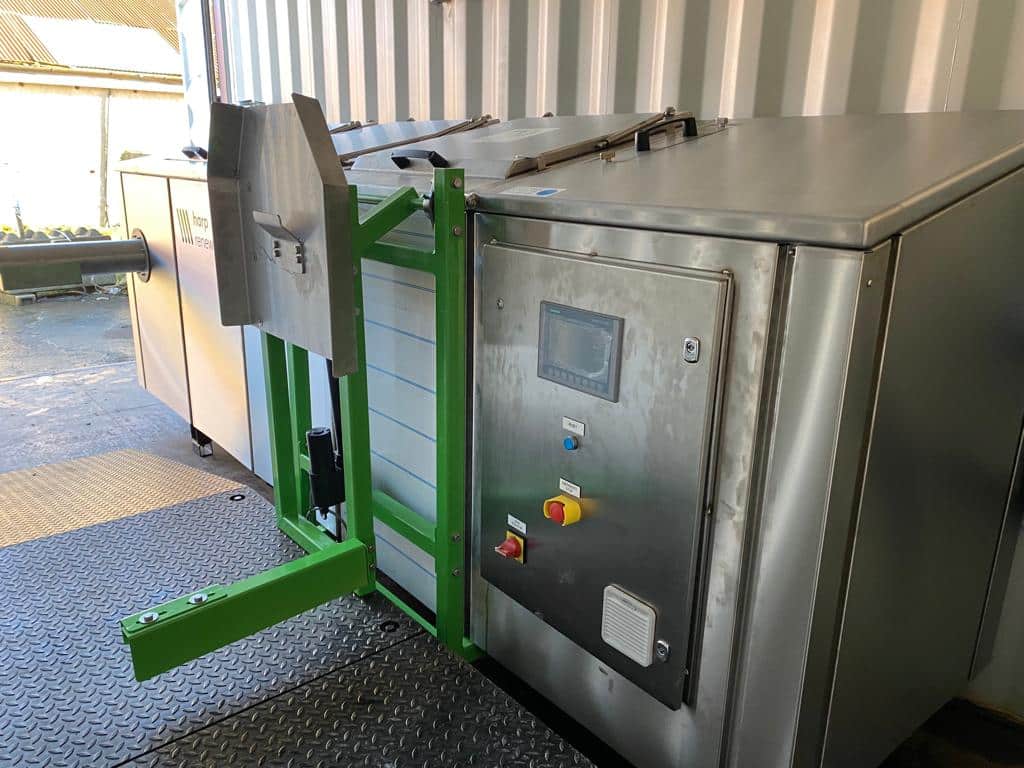



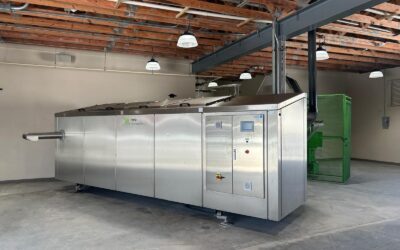
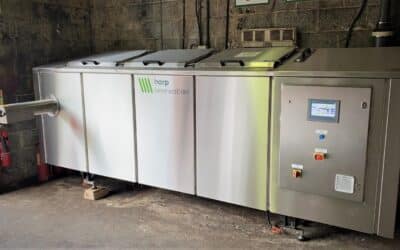

0 Comments